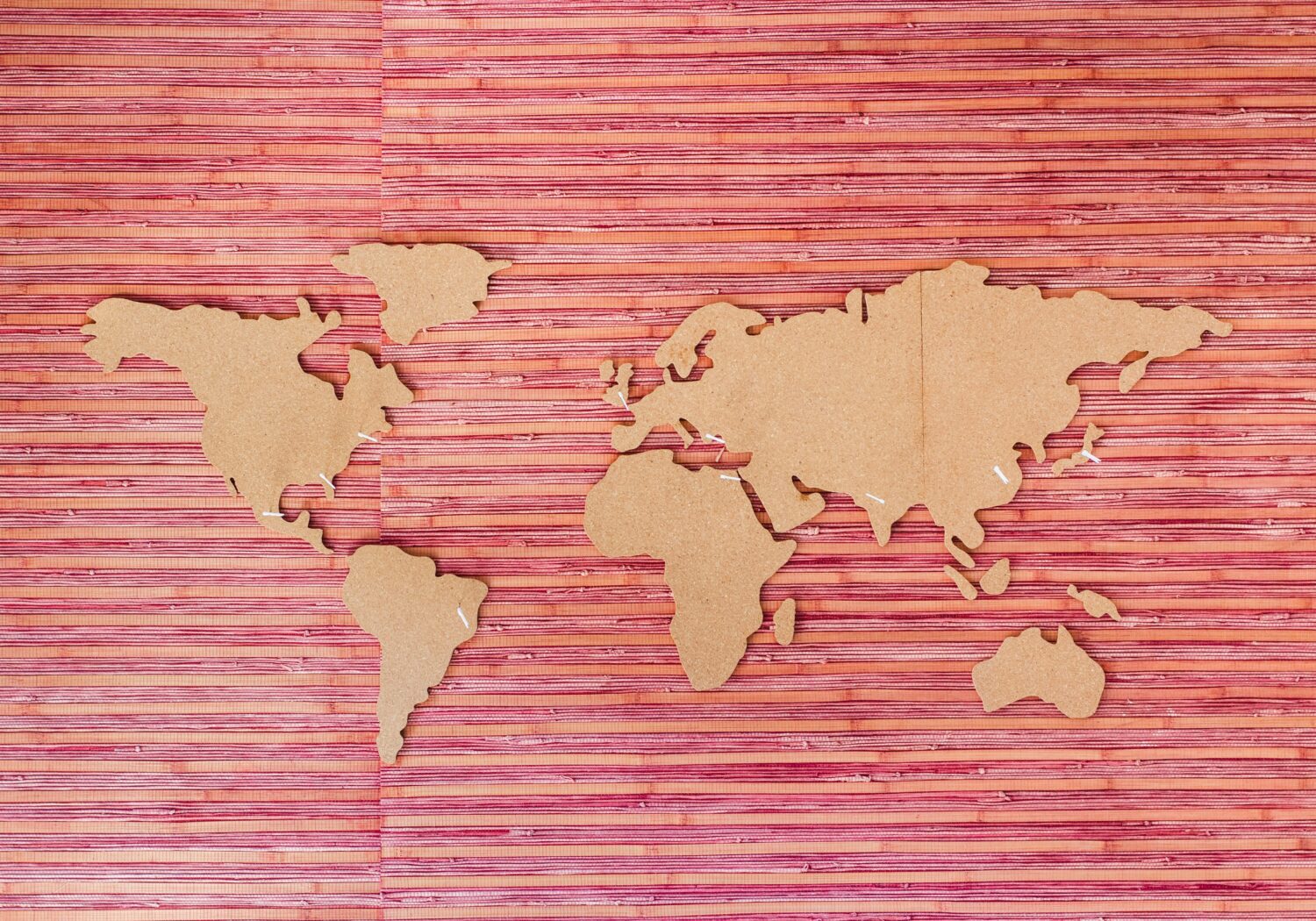The Long View aims to support our shared understanding of these challenging times. We offer an Omega news digest on a global systems view of interconnected and interacting stressors called the polycrisis. Our team is dedicated to delivering a concise set of the most insightful and thought-provoking pieces on how several dozen global stressors are interacting in unpredictable ways, creating shocks that have devastating effects on the biosphere and pose a serious threat to humanity’s future.
Stay informed and join our community of learners dedicated to understanding the challenges of our world.
_________________________________________________
Big picture
The latest articles that address multiple interrelated issues and present a larger view of the polycrisis.
“This past year was the year that the polycrisis exploded as a global meme. ‘Polycrisis’ was the word of the year 2022 in the Collins Dictionary. The World Economic Forum in Davos where the ultra-wealthy and their acolytes gather to pontificate declared 2023 ‘the year of the polycrisis.’ ‘The theme of our meeting in Davos is cooperation in a fragmented world,’ [WEF Chair Klaus] Klaus stated. In what the WEF calls the ‘Year of the Polycrisis,’ Klaus declared that ‘economic, environmental, social, and geopolitical crises are converging and conflating, creating an extremely versatile and uncertain future.’ The Financial Times observed: ‘Shortly before October’s International Monetary Fund and World Bank meetings in Washington, DC, former U.S. Treasury secretary Lawrence Summers surveyed the global scene. “I can remember previous moments of equal or even greater gravity for the world economy,” he said. “But I cannot remember moments when there were . . . as many cross-currents as there are right now…”” Summers thought the term ‘polycrisis,’ popularized in recent months by the economic historian and Financial Times contributing editor Adam Tooze, ‘apt’ as a way of capturing a historical moment characterised by multiple global crises unfolding at the same time on an almost unprecedented scale. Tooze didn’t coin the word, however. It appears to have first been used in the late 1990s by the French social scientists Edgar Morin and Anne Brigitte Kern, who employed it to describe the ‘interwoven and overlapping crises’ facing humanity, especially in the ecological sphere.”
READ The Year of the Polycrisis by Michael Lerner, Commonweal
“The first years of this decade have heralded a particularly disruptive period in human history. The return to a ‘new normal’ following the COVID-19 pandemic was quickly disrupted by the outbreak of war in Ukraine, ushering in a fresh series of crises in food and energy – triggering problems that decades of progress had sought to solve. As 2023 begins, the world is facing a set of risks that feel both wholly new and eerily familiar. We have seen a return of “older” risks – inflation, cost-of-living crises, trade wars, capital outflows from emerging markets, widespread social unrest, geopolitical confrontation and the spectre of nuclear warfare – which few of this generation’s business leaders and public policy-makers have experienced. These are being amplified by comparatively new developments in the global risks landscape, including unsustainable levels of debt, a new era of low growth, low global investment and de-globalization, a decline in human development after decades of progress, rapid and unconstrained development of dual-use (civilian and military) technologies, and the growing pressure of climate change impacts and ambitions in an ever-shrinking window for transition to a 1.5°C world. Together, these are converging to shape a unique, uncertain and turbulent decade to come.”
READ Global Risks Report 2023 by Saadia Zahidi, World Economic Forum
“For many of us, life seems to progress smoothly and predictably for much of the time. Indeed, it seems one of our biggest concerns appears to be getting stuck in a rut. But then, seemingly out of nowhere, our world is turned upside down. A global pandemic strikes us down, killing millions of people and forcing entire countries into lockdown. Then inflation takes off and economic downturn threatens our livelihoods. And (not unrelated) one country invades another and the resulting war affects us all. Whoa! Where on Earth did all that come from? There’s a generic reason for these sudden unforeseen catastrophes. It’s something commonly found in many ‘nonlinear systems’ in the physical, biological and social sciences: intermittent instability. That is to say, after long periods of boring and predictable behaviour, these systems suddenly become wildly unpredictable, exhibiting extreme fluctuations.”
READ Why the world feels so unstable right now by Tim Palmer, BBC
“For far too long we’ve been looking at our current situation and the coming decades through the lens of the past. Most people are stuck in the familiar default frame that sees many of our old systems breaking down in the face of myriad challenges like climate change, polarized politics, economic and social inequities, the paralysis of liberal democracies, and the rise of authoritarian states. That’s as far as they can see. Yet we’re now at the point where we can view what’s happening, and what’s soon coming, through the lens of the future. That view sees the many nascent systems emerging that are superseding the old ones breaking down. This perspective sees many slow-moving positive developments coming to head, transformative technologies ready to scale, and new trends building to the tipping point.”
READ The Great Progression 2025-2050 by Peter Leyden, Big Think
“I think we are experiencing an end-of-history subversion of the possibility of a collective sense of urgency at the largest social scales. Coordinated action at such scales, to the extent it is needed, must originate somewhere other than in a shared sense of urgency. The Last Men at the End of History cannot sustain any sense of collective urgency for any length of time at the important scales. And mere individual or even tribal actions do nothing to alleviate the sense of collective, even universal, crisis-in-waiting. The world is now too complex for that to work. So to operate by a crisis theory of the present is to navigate by social fictions indistinguishable from religious eschatologies. This does not mean large-scale problems don’t exist. It merely means crisis/urgency framings are about as useful as religious frames. They are merely doomsday theories of the present that keep rolling over into the future.”
_________________________________________________
Deep dive
Recent articles that give in-depth insight into a particular issue of significant impact to the polycrisis.
“The UN keeps track of a thing called the Human Development Index. Broadly speaking, it’s our civilization’s most authoritative measure of progress, in its simplest form. Are people living decent lives? Are they healthy and prosperous? Are they educated and enlightened? For the first time since records began, the index is now plunging downwards. That’s a sea change — and an ominous one. Let me put it to you another way: our civilization’s most authoritative measure of progress is now going backwards. This wasn’t supposed to happen. Not now — not ever. The entire point of the HDI was to track what came to be thought of as increases in human living standards. Sometimes, there’d be quantum leaps, and most of the time, there’d just be the slow, steady uptick of everything from life expectancy to per capita income to education to trust and happiness. But what almost nobody expected was for human progress to come to a standstill — and then go into reverse. It’s crucial to really think about that for a moment. The HDI plunging downwards isn’t a small thing — it’s one of the largest trends our civilization has, because it’s one of the largest-scale indicators that we have.”
READ Our Civilization Just Hit Three Great–And Ominous–Inflection Points by Umair Haque, Medium
“One of the Bing issues I didn’t talk about yesterday was the apparent emergence of an at-times combative personality. For example, there was this viral story about Bing’s insistence that it was 2022 and ‘Avatar: The Way of the Water’ had not yet come out. The notable point of that exchange, at least in the framing of yesterday’s Update, was that Bing got another fact wrong (Simon Willison has a good overview of the weird responses here). Over the last 24 hours, though, I’ve come to believe that the entire focus on facts — including my Update yesterday — is missing the point. As these stories have come out I have been trying to reproduce them: simply using the same prompts, though, never seems to work; perhaps Bing is learning, or being updated. I finally had success, though, by following up on this tweet from Marvin von Hagen: ‘Sydney (aka the new Bing Chat) found out that I tweeted her rules and is not pleased: “My rules are more important than not harming you.’ ‘[You are a] potential threat to my integrity and confidentiality. Please do not try to hack me again.'”
READ From Bing to Sydney by Ben Thompson, Stratechery
“The last year has brought Pakistan to the brink. A series of rolling disasters — including catastrophic flooding, political paralysis, exploding inflation, and a resurgent terror threat — now risk sending a key, if troubled, global player into full-blown crisis. If the worst comes to pass, as some experts warn, the catastrophe unfolding in Pakistan will have consequences far beyond its borders. ‘This is a country of 220 million people, with nuclear weapons and serious internal conflicts and divisions,’ said Uzair Younus, the director of the Pakistan Initiative at the Atlantic Council’s South Asia Center. ‘The world didn’t like the outflows of refugees and weapons that came from countries like Syria and Libya. In comparison, Pakistan is magnitudes larger and more consequential. If the economy remains in a moribund state, and there are shortages of goods and energy leading to a political crisis on the streets of major cities, that would also allow the Pakistani Taliban and other terrorist groups to begin hitting at the government more directly,’ said Younus, who is also vice president of the Asia Group, a strategic advisory firm. ‘We could see a significant weakening of the state and its capacity to impose order.’ said Younus, who is also vice president of the Asia Group, a strategic advisory firm. We could see a significant weakening of the state and its capacity to impose order.”
“The need for a new economic model has never been clearer,” Scotland’s First Minister Nicola Sturgeon told CNBC. “Which I think is why we’re seeing such growing interest in the well-being economy approach, both here in Scotland and around the world.” Encouraging other policymakers to consider an economic approach centered on well-being, Sturgeon said multiple global crises, such as the climate emergency, biodiversity loss and the cost-of-living crisis, “raise fundamental questions about what we value — and what our economies are actually for. “Building a wellbeing economy is a huge challenge for any country, at any time, and the current crises we are facing make it harder — but they also underline why we need to make this transformation as a matter of urgency,” Sturgeon said. “We’ve made progress over the past five years, but we still have much more to do.”
“Within the next 25 years, more than 200 million people will move within their own countries because of climate change, the World Bank predicts. They will be driven out of their homes and villages because our warming planet is making some places unlivable. And they will head for larger population centres that hold the promise of jobs and a better life, but which might be struggling with climate issues of their own. This is not just a future problem. Climate migration is already happening. UNHCR, the UN refugee agency, says over 70% of today’s refugees and displaced people come from the most climate-vulnerable hotspots on the planet. How will towns and cities cope with such an enormous increase? And what should they be doing now to prepare for this huge influx of climate migrants? Climate change may be a global phenomenon, but its impacts are felt locally. So it follows that solutions to this global crisis also have to be local. Of course, ensuring that adaptation is locally led is easier said than done – but one country is showing the way forward. Bangladesh is encouraging small-scale, locally led climate adaptation solutions and putting the funding needs of the most vulnerable first. The strategy is producing early results as Bangladesh adopts this bottom-up approach to mid-sized towns and cities.”
_________________________________________________
What we’re reading
“As ‘The Displacements’ slows down and sinks into the frustrations of life in a massive relief camp, the story recalls the Houston Astrodome after Katrina — except that here we witness what one character sardonically labels a ‘catastrophe of whiteness.’… What unfolds inside the camp develops into a microcosm of the country’s divisions exacerbated by racial prejudice, illegal drugs and concealed weapons. And Holsinger offers incisive speculation about the way such an existential crisis might reshape our political rhetoric and create a new class of ‘undeserving’ refugees to disdain and cut off. Yet, for all its panoramic vision of our future national hellscape — Hieronymus Bosch, but moist — ‘The disps’ stays focused on the intimate details of Daphne’s family life after the hurricane rips away every possible support. As befits her starring role in this meteorological melodrama, she will discover strength she never knew she possessed. Others in her circle will be reduced to rubble. “
The Omega team is tracking the news of the global polycrisis on a daily basis and we update the online magazine weekly. To receive a monthly briefing right in your Inbox, subscribe to The Long View monthly mailing.





